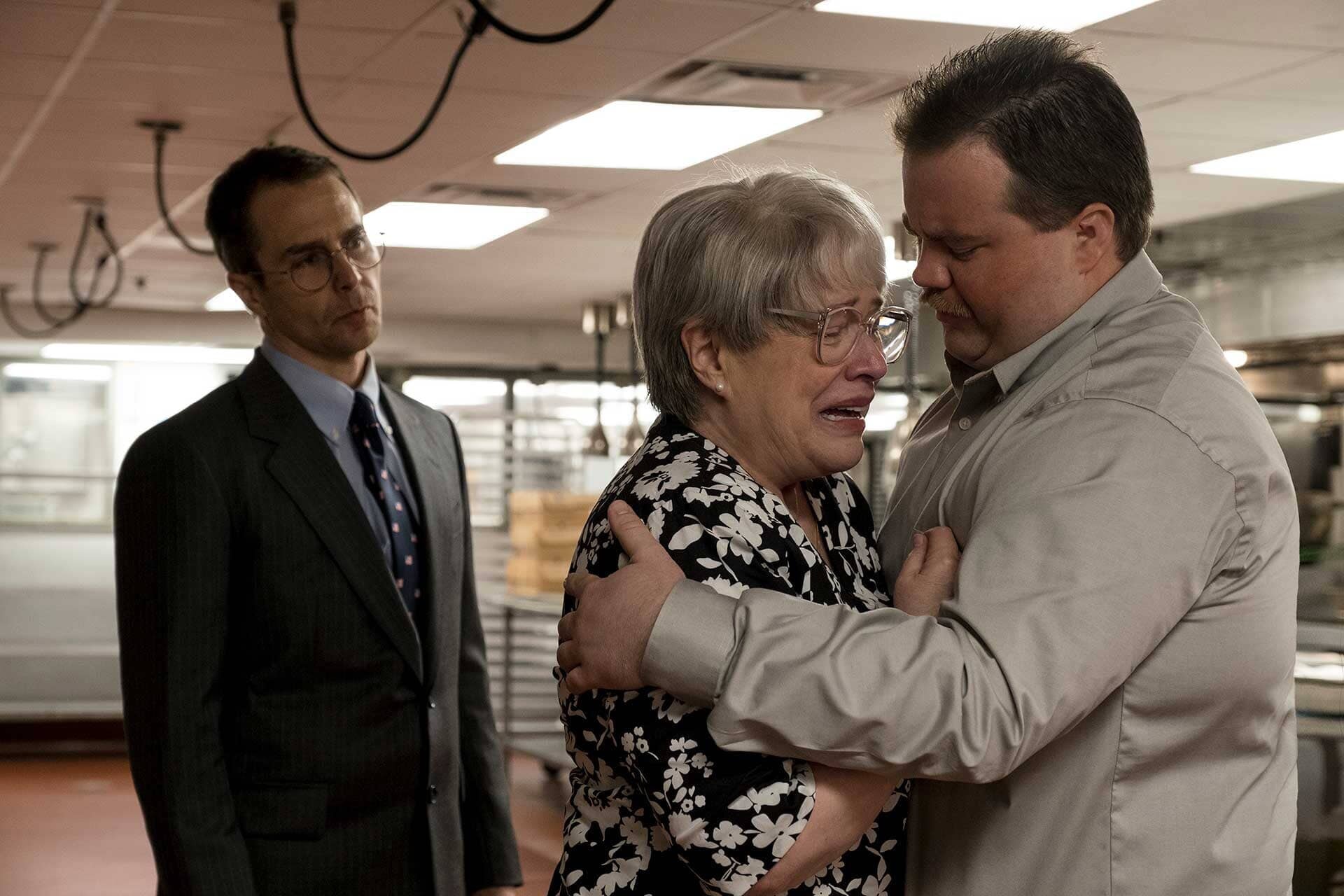
The Atlanta Journal-Constitution (AJC) has demanded a disclaimer be added to the upcoming film Richard Jewell that acknowledges artistic license was used in showing journalist Kathy Scruggs trading sex for story tips.
A letter, sent by attorney Martin Singer on behalf of the newspaper to director Clint Eastwood, Warner Bros. and others behind Richard Jewell, says the film “falsely portrays the AJC and its personnel as extraordinarily reckless, using unprofessional and highly inappropriate reporting methods.” The letter claims the film inaccurately portrays Scruggs — a real AJC reporter who died in 2001 — as a journalist who unethically uses sex to gain information.
“Ms. Scruggs was an experienced reporter whose methodology was professional and appropriate, in contrast to how she is portrayed in the film,” reads the letter, according to a copy obtained by TIME. “She was a seasoned reporter who worked proactively within appropriate journalistic bounds. Despite the true facts, the film depicts her use of inappropriate and unprofessional reporting methods that included getting story tips from an FBI source in exchange for sexual favors.”
Richard Jewell examines the media firestorm that ensued in 1996, when a security guard named Richard Jewell discovered a bomb at the Atlanta Summer Olympics and alerted authorities to evacuate the premises. While Jewell was at first praised for his heroic actions, he was later falsely accused of planting the bomb himself.
Scruggs, played by Olivia Wilde in the film, broke the story that Jewell was under FBI investigation. In the movie, Wilde’s Scruggs nabs the story by sleeping with an FBI agent played by Jon Hamm. According to the AJC, that never happened.
“Not every newspaper finds itself portrayed in a movie, and when we did, it was very upsetting to see Kathy Scruggs portrayed in a way that demeans not just her work, but the work of the AJC,” Kevin Riley, editor of the AJC, tells TIME. “Clint Eastwood portrays journalists in a way that plays to a lot of misconceptions about how professional reporters work.”
Riley says the film falls into a common Hollywood trope that depicts female journalists as constantly willing to bend ethical lines and use sex to get ahead — a stereotype has been on display in shows from House of Cards to Gilmore Girls. Adding salacious details about Scruggs does little to further the overall point of Richard Jewell, he says, calling it “lazy storytelling.”
The newspaper has asked the filmmakers to issue a statement and add a disclaimer to Richard Jewell “publicly acknowledging that some events were imagined for dramatic purposes and artistic license and dramatization were used in the film’s portrayal of events and characters.”
Wilde, in response to the criticism of the way she portrayed Scruggs, said it was “never my intention” to suggest that Scruggs “traded sex for tips,” in a series of tweets posted Dec. 12.
“The perspective of the fictional dramatization of the story, as I understood it, was that Kathy, and the FBI agent who leaked false information to her, were in a pre-existing romantic relationship, not a transactional exchange of sex for information,” Wilde wrote.
She added: “I do not believe sex-positivity and professionalism are mutually exclusive. Kathy Scruggs was a modern, independent woman whose personal life should not detract from her accomplishments. She unfortunately became a piece of the massive puzzle that was responsible for the brutal and unjust vilification of an innocent man, Richard Jewell, and that tragedy is what this film attempts to shed light on.”
Warner Bros. called the AJC’s assertions about the film’s inaccuracies “baseless” in a statement to TIME.
“The film is based on a wide range of highly credible source material. There is no disputing that Richard Jewell was an innocent man whose reputation and life were shredded by a miscarriage of justice,” the statement read. “It is unfortunate and the ultimate irony that the Atlanta Journal Constitution, having been a part of the rush to judgment of Richard Jewell, is now trying to malign our filmmakers and cast.”
Warner Bros. noted that a disclaimer at the end of Richard Jewell says: “The film is based on actual historical events. Dialogue and certain events and characters contained in the film were created for the purposes of dramatization.”
Representatives for Eastwood did not immediately return requests seeking comment. An attorney for Billy Ray, the film’s screenwriter, declined to comment.
More Must-Reads from TIME
- Donald Trump Is TIME's 2024 Person of the Year
- Why We Chose Trump as Person of the Year
- Is Intermittent Fasting Good or Bad for You?
- The 100 Must-Read Books of 2024
- The 20 Best Christmas TV Episodes
- Column: If Optimism Feels Ridiculous Now, Try Hope
- The Future of Climate Action Is Trade Policy
- Merle Bombardieri Is Helping People Make the Baby Decision
Write to Mahita Gajanan at mahita.gajanan@time.com